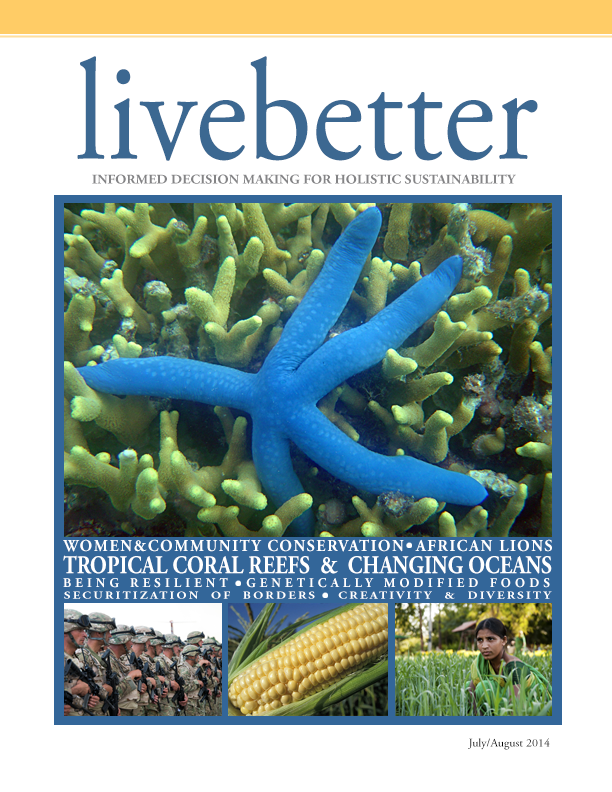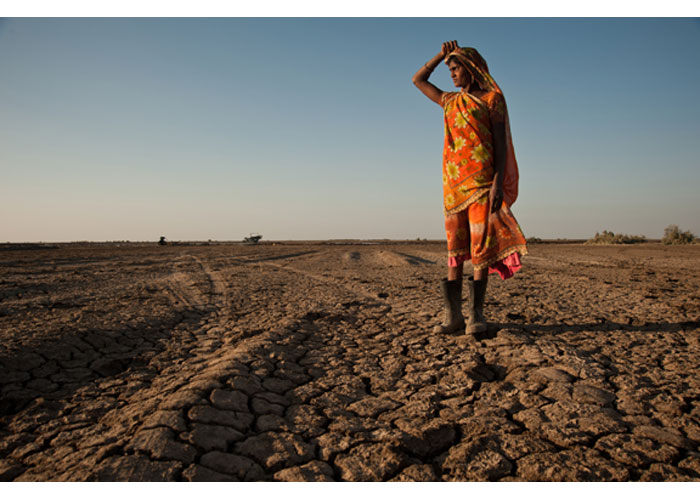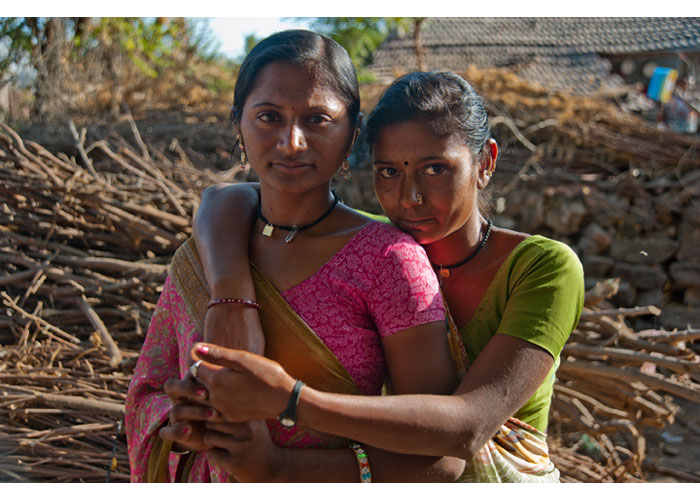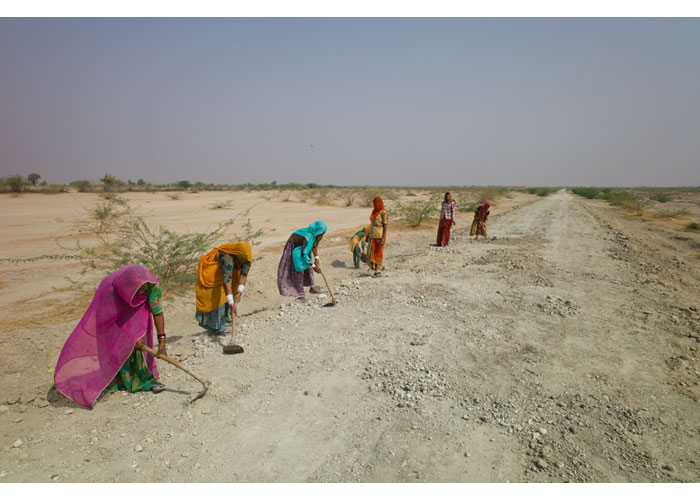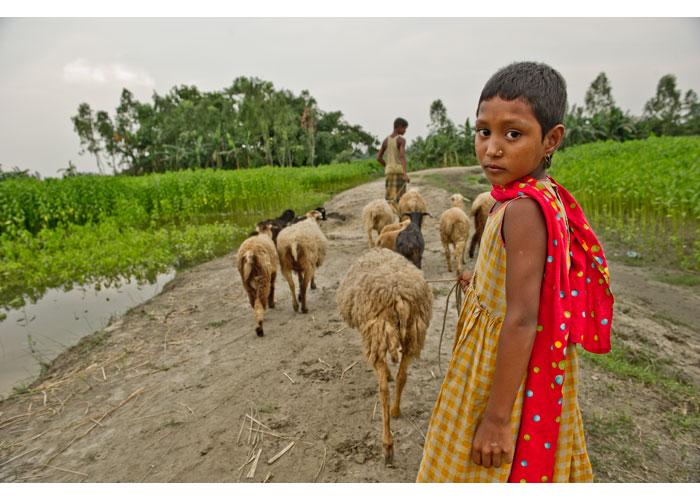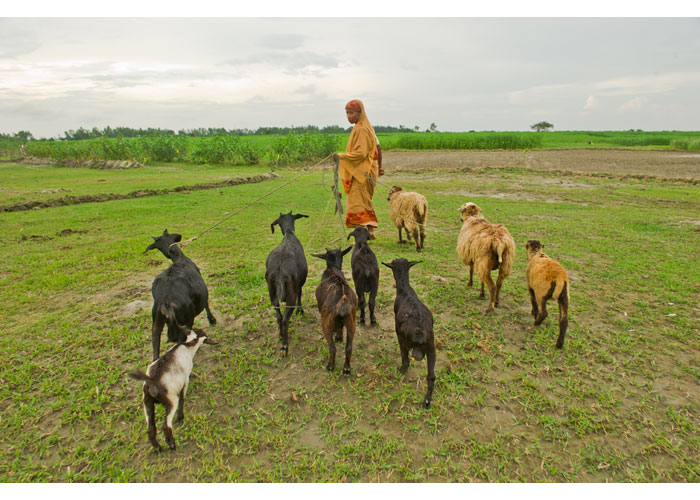Admiral Sam Locklear on National Security & Global Change
The world we’re in today is undergoing as rapid a change as any in the history of mankind. Everything necessary to support the world’s population is changing at incredible rates causing increased pressure on the planet, environment, society and individuals in general, comments Admiral Samuel J. Locklear, Commander Allied Joint Force Command, Naples. In an interview for livebetter’s September 2011 issue, Locklear provides his perspective on national security and global change as a senior military leader, having served nearly four decades in the U.S. Navy.
Concerning what he sees as the most influential change affecting the world today, Locklear continues: “The biggest change, in my opinion, is the advent of globalization enabled by rapidly developing digital technology. Computer networks and data processing capabilities have revolutionized the methodology and speed of information exchange. Technology has enabled rapid growth in trade volume on a global scale and led to an ever-increasing web of economic and social interconnectedness.
“Globalization is literally reshaping human migration patterns, influencing health and affecting education, culture, and the spread of ideas and ideologies. From a maritime perspective, technology is also enabling the rapid expansion of activities like energy development, resource extraction and other commercial activity in and under the oceans. What we need to be mindful of, however, is that these rapid advancements and developments offer opportunities for growth, but they are also potential sources of competition and conflict for access to markets and natural resources. This is the future.”
livebetter: What are your responsibilities as the Commander of U.S. Naval Forces Europe (CNE), U.S. Naval Forces Africa (CNA) and the Allied Joint Force Command in Naples (JFC NP)?
ADM Locklear: “Geographically, CNE/CNA covers a huge expanse that stretches from pole to pole across Europe and Africa. The command includes the eastern Atlantic and the western Indian oceans plus the Baltic Sea, North Sea and the Mediterranean. I report to both Commander, U.S. European Command and Commander, U.S. Africa Command. On the NATO side I report to the Supreme Allied Commander Europe and am responsible for NATO operations in southern Europe, the Mediterranean Sea and the Black Sea. I exercise operational command over NATO’s operations in the Balkans, NATO’s training mission in Iraq and ongoing operations in Libya. On the U.S. side, forces under my command planned and executed Operation Odyssey Dawn, the initial strikes against Libya’s regime back in March. It’s the first time in my career commanding both U.S. and NATO forces. I have seen how the two work together and have been very proud of the results.
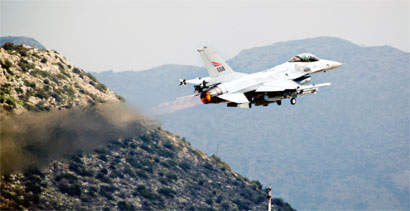
Photo Credit: NATO | Norwegian F-16 flying over Suda Bay as part of the No-Fly Zone enforcement and protection of the Libyan civilian population under Operation Unified Protector.
livebetter: Despite having access to a wealth of information, it seems that many of us were caught off guard by the “Arab Spring” that swept across the Maghreb. Do you think we could have done a better job predicting this given the fact that we are so interconnected?
ADM Locklear: “My basic assessment is that we probably could have. Most countries that are moving toward more democratic perspectives and individual rights have commonalities. In each of the ‘Arab Spring’ countries we’ve seen rapid population growth that is resulting in a decreasing average age. In many of these countries the average age is in the low 20s and getting younger. Detrimentally, the increasing population is matched by rising unemployment rates, which are sometimes 20 percent or more. They have economies depressed by the global economic situation and suffer from low comparative wages.
“Until now, these negative trends were masked by authoritarian governments and security policies that controlled the flow of information to their populations. Government-controlled media services made it appear that their citizens’ lifestyles weren’t that bad. In many cases, strong internal security forces and military forces were used to keep the population in check. If we had paid more attention we could have predicted what was going to happen and would have been in a better position to help. What caught us off guard, however, was the speed at which this movement grew.”
livebetter: What enabled the movements to grow so quickly?
ADM Locklear: “It started with a shared vision for the future, but I believe the key enabler for that vision’s rapid spread was technology – internet, cell phones and instantaneous access to information. At first, these allowed people to gain access to the same information the free world enjoys. They started looking at their situation, which they were led to believe was better than it actually was, and compared it to people in San Diego, Paris and Tokyo. They said, ‘Hey, this doesn’t seem quite fair to me, and we’d like to have what they have.’ For decades the Western World has advocated that the way to get these things is through democratic reform, power of the people, power of the vote, power of democratic processes and power of rule of law. It looks to me like they listened.
“However, access to information was only one aspect of the Arab Spring movement; the other was social media. Twitter and Facebook allowed thousands of people to come together in seconds with the same agenda and perspective. This is what we’ve seen happening throughout these countries. Fortunately, some of these gatherings have worked out better than others. In the case of Libya, which has the world’s attention, a very effective dictator couldn’t tolerate the idea that Libya could be a free and democratic society so he turned his army against his own people. That’s what led to the United Nations Security Council resolutions and ultimately the international community’s political and military involvement.”
livebetter: The Arab Spring was a significant event across the Mahgreb. What about the rest of Africa? Is anything changing there that is concerning or noteworthy from your perspective?
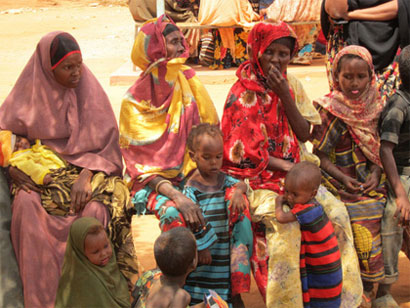
Photo Credit: L. Meserve/USAID
ADM Locklear: “Africa as a whole is experiencing varying degrees of transformation and will undoubtedly be an area of opportunities and challenges for the United States in the coming century. Take a look at what’s happening in Africa where many nations are experiencing considerable growth and change. Today more than one billion people live in Africa, and the expectation is that the continent’s population will double by the middle of this century. This is going to put an incredible amount of stress on Africans not only with respect to their natural resources, but also with respect to their social mechanisms and their ability to take care of so many people. Africa’s ability to sustain its population is going to be a challenge. I believe it is likely that many African nations will have some of the same problems experienced by the Maghreb states.
“Population growth, high unemployment, low wages, food and water shortages, and lack of healthcare have the potential to create an unsettling security environment. This will create both challenges and opportunities for the rest of the world. At Naval Forces Europe and Naval Forces Africa we are actively seeking opportunities to do all we can to help Africans secure their future. Africa Partnership Station (APS) is one of our principle efforts and is an international initiative to improve the maritime safety and security in Africa. It’s been ongoing for four years now and brings together more than 30 African, European and South American countries all motivated by the belief that building maritime capabilities will contribute to economic development and result in prosperity and security within Africa nations.
“Senegal, Nigeria, Cameroon, Sierra Leone, Kenya, Mozambique, Seychelles and Tanzania are just a few of the participating countries. Many have demonstrated improved capability in critical maritime security skills such as Visit, Board, Search and Seizure, or VBSS, and force protection and law enforcement. Our African partners are not simply receiving training; they are leading training events and are becoming proficient enough to participate in complex maritime exercises. We are already seeing tremendous results. As of June 2011 Kenya has captured, tried and convicted more than 49 suspected pirates. Sixty more are currently awaiting trial. This is quite a success story.”
livebetter: What about Europe and NATO?
ADM Locklear: “Europe is also undergoing many changes as it tries to bring a European centric economy together and institute security reforms across the European nations. NATO is evolving, as well, and we are constantly seeking ways to make our relationship with the European Union more symbiotic. We are looking at the security of the Alliance and the security at the outer edges of Europe – meaning the Middle East and African Maghreb – and how those areas relate to the overall security picture for NATO. We anticipate that rapid globalization will result in regional security issues. Pressure on food and fuel resources coupled with climate change will create significant challenges for Europe as well. There will undoubtedly be migration challenges and increased narcotics and human trafficking.
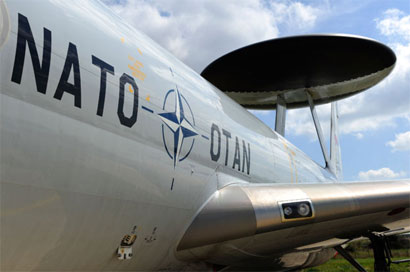
Photo Credit: Corporal Marc-André Gaudreault, Canadian Forces Combat Camera – © 2011, DND-MDN Canada
“After a year at NATO, I have a better appreciation for the importance of the Alliance in a world that’s rapidly changing. The 28 countries that make up NATO share a common perspective on democratic values, respect for liberty and respect for rule of law. They understand the importance of working together to protect and to promote those values. As of 1999, 19 countries were members of NATO. Today, there are 28 countries with more that continue to be postured to either want to participate with NATO or to eventually become part of NATO. I think as long as NATO adheres to its core tenets and its security apparatus remains in-line with those values, there will be many countries wanting to be part of this organization. NATO has earned the respect of the international community as an organization that is united, capable and compassionate.
“Becoming a NATO member is a message to the world that a nation has achieved a graduate-level of military, economic and institutional maturity. NATO has already evolved to have a global perspective that goes beyond the physical borders of Europe and the North Atlantic and has started to recognize that Alliance interests reach into Africa’s Maghreb, the Middle East and beyond. This has forced NATO out of its historic view of protecting itself from threats on its immediate borders.”
livebetter: We spend a great deal of time focusing on change, whether it’s technological, social, organizational or environmental. Do you see any constants?
ADM Locklear: “The most important thing that has remained constant throughout this period of incredible change is the medium on and through which this global system depends – the world’s oceans. Within the past four decades, total seaborne trade has more than quadrupled as 90 percent of all goods, products and commodities travel across the seven seas. Ocean trade routes have been and will continue to be the lifelines of a rapidly tightening global economic and social system. The oceans are also sources of food and potential sources of minerals and energy that we are only now beginning to understand and to explore. Equally important in today’s world, trans-oceanic cables transport information along the sea bed that enables us to communicate using innovative technology and social media. With the majority of the world’s population living within several hundred miles of the ocean, globalization will place more and more emphasis and pressure on what we call the ‘maritime domain’.”
livebetter: What is the United States Navy’s role in the world you are describing?
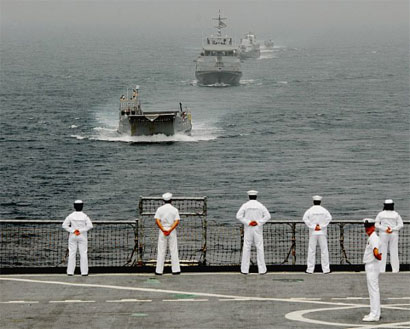
U.S. Navy photo by Mass Communication Specialist 2nd Class RJ Stratchko | Africa Partnership Station (APS) Sailors watch as landing craft utility (LCU) 1655 leads a formation of the Equatorial Guinea Navy behind the APS flagship, the dock landing ship USS Fort McHenry (LSD 43), along the coast of Equatorial Africa. In addition to maritime training, APS will perform more than 20 humanitarian projects in the region.
ADM Locklear: “The United States has a highly capable Navy but it has been my position for a long time that it’s too small for the world we face. Think about it. U.S. Navy ships routinely operate today in places that I would have had a hard time finding on a globe when I started my naval career almost four decades ago. So for the Navy and maritime security, the world is not getting smaller; it’s getting larger. Our ships routinely operate in the Horn of Africa, and they’re now operating in the Gulf of Guinea. We are increasing our operations in South American regions and we remain deployed forward throughout the Pacific with significant capabilities. Additionally, we must begin preparations now for retreating Arctic ice as this will increase the scope of Navy and Coast Guard responsibilities. We’re doing all this with a Navy that’s less than 300 ships. They’re good ships and great people. We have superb systems, and the American people have been very generous to give us the great Navy we have. However, we need more.”
livebetter: If 300 ships aren’t enough, how will the United States Navy meet its obligations in a world that is becoming more complex?
ADM Locklear: “At the last International Seapower Symposium, which is held every two years, Chief of Naval Operations Admiral Gary Roughead was able to bring together the heads of navies from more than 100 countries willing to partner with us. The foundation was the Global Maritime Security Initiative and the Navy’s Cooperative Strategy for 21st Century Seapower. The concept is a mechanism to get countries that have navies with similar security perspectives to come together in a cooperative, synergistic way to produce the security environment we need. This includes everything from humanitarian assistance to the control of illegal contraband on the seas to the protection of major trade routes and sea lines of communication. So, the U.S. needs to work together with partnering nations to cover these maritime security specifics in a way that will guarantee the results we want.
“The first step was to get all the countries that have maritime interests to acknowledge their responsibilities. For example, right now we’re working with coastal African states to help them improve their ability to understand and to sense their maritime environment. This is a very important first step. Secondly, we’re working with them to prioritize their interests within the maritime environment. This could include protection of their fishing stocks, protection of their sea bed natural resources, how to control the flow of illegal migrants or coastal security for prevention of terrorists or organizations using their shoreline as entry points into their country. Getting countries to recognize these things and then to partner with them, either through bilateral or multi-lateral relationships, will synergistically leverage the capabilities of their smaller navies.”
livebetter: How important will this be in the future?
ADM Locklear: “Every partnership we build contributes to the security of our nation and, ultimately, the globalized economy in which we exist. Because we are becoming more interconnected and economically interdependent, widely distributed and, when necessary, surged seapower will be critical to the maintenance, sustainment and advancement of the global system. What cannot be surged, however, is the trust and cooperation we will need in the face of crises. With that in mind, we will continue to foster and to sustain cooperative relationships with an expanding set of international maritime forces focused on preventing conflict before it begins.
“To do this, we will need to remain forward deployed and ready. Ready for what? In short, we must be ready for everything and anything. Because of the interconnected nature of our world, we always need to consider the secondary and tertiary effects of our actions. Everybody is watching. Even temporary basing on foreign soil can have unintended consequences. So, we must seek alternative, creative solutions. In my opinion, we must turn to the sea. The sea is a vast maneuver space, where the presence of maritime forces can be adjusted as conditions dictate to enable flexible approaches to myriad potential disruptions to our global system. I believe this will define our future as naval professionals.”
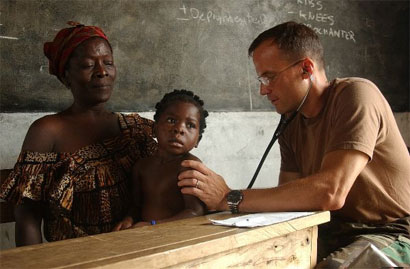
U.S. Navy photo by Lt. j.g. Todd Beveridge
livebetter: Do you see the United States Navy continuing its leadership role in this future you just described?
ADM Locklear: “I do. The United States needs to assume a leadership role protecting, policing and shaping the world’s oceans now more than ever. Even though many of us enjoy the rewards of globalization, there is an underlying current of fragility about which we must be constantly mindful. Disruptions to interconnected economies and societies can come from anywhere at any time – natural disasters, civil war, piracy, territorial disputes, terrorism, revolutions. We’ve seen many of these events in this year alone, many of them with a component that touches the maritime domain. These challenges require leadership, creativity and resources to reduce the amplitude of their effect on the globalized economy.
“As I said earlier in this interview, globalization is heavily dependent on the world’s oceans and no one nation has the resources required to provide safety and security within the expansive maritime domain, not even the United States. But, the reality for the U.S. as the world’s only super power, and I would anticipate that we will remain the super power for the foreseeable future, is that we have a tremendous responsibility maintaining security in the maritime domain. These security measures include environmental leadership as well. The U.S. Navy is solidly committed to the responsible stewardship of our planet and much like the prevention of conflict, the preservation of natural resources will offer significant contributions to security and stability.”
livebetter: Do you have any closing thoughts or take-aways?
ADM Locklear: “I think the key take-away for people who read this article is that the U.S., as a global super power, will continue to have responsibilities to help in every way it can and to be a leader in maintaining global security. It’s in our economic best interest and the best interest of the American people at large. So, it’s important that we build and maintain a Navy that recognizes the strategic importance of the global maritime domain. It’s vital for the U.S. Navy to operate globally across a full range of mission sets, to be respected globally and to be a global force for good. We must be able to partner with as many nations as possible, be willing to share in our capabilities and be able to build lasting relationships in order to, hopefully, provide a safer maritime environment, and world, for future generations.”











